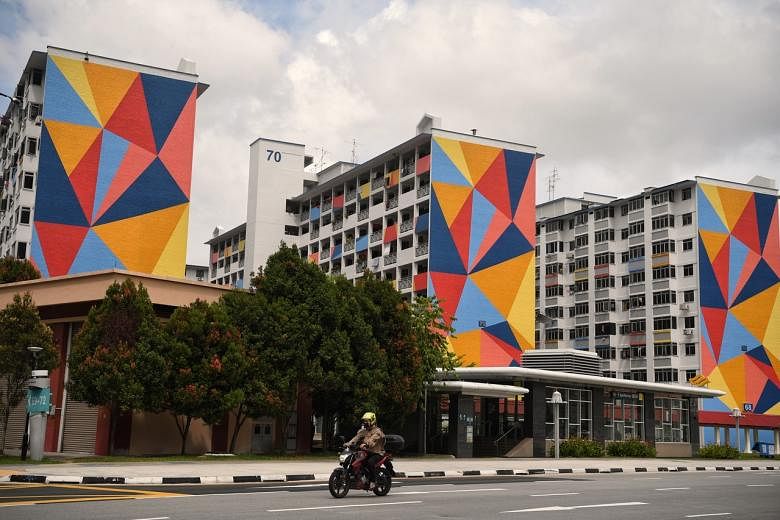SINGAPORE - Each member of a Singaporean household received an average of $2,000 in Covid-19 support, around 70 per cent of which came from the broad-based Care and Support Package, said the Ministry of Finance (MOF) on Thursday (Feb 11).
On average, each household received around $4,000 from broad-based schemes such as the Care and Support Package, the majority of which came in the form of cash transfers.
Households with less means - whose members experienced job or income losses, or were self-employed - received an additional $5,100 in relief on average.
Over the past year, the Government committed a total of $10 billion towards cash transfers and social assistance schemes, skewed towards lower-income households and those who had been harder hit by the pandemic, the ministry noted in its report on the impact of last year's Budget measures.
This included funds under schemes such as the Temporary Relief Fund (TRF), Covid-19 Support Grant (CSG) and Self-Employed Person Income Relief Scheme (Sirs), which have together helped over 500,000 people.
The significant amount of support helped mitigate inequality, with Singapore's Gini coefficient falling after accounting for government transfers and taxes. The Gini coefficient measures income inequality from 0 to 1, with 0 being most equal. Singapore's Gini coefficient went from 0.452 to 0.375 last year, after transfers and taxes were taken into consideration.
"The significant reduction in 2020 can be attributed to the Covid-19 measures which were tilted to provide more help to those with lower incomes and who may lack other forms of support," MOF said.
In its report, the ministry also noted that lower-income households received higher payouts under certain components of the Care and Support Package. These included the Workfare Special Payment, as well as grocery vouchers which helped offset daily expenses.
Meanwhile, households with self-employed members or those who had experienced job or income losses, benefited from the TRF, CSG and Sirs. These three schemes accounted for about 30 per cent of the benefits received, on average.
The Covid-19 measures were also distributed in a progressive manner, the ministry said.
Singaporean households in the bottom 20 per cent by income received about $2,500 per member on average, while those in the next 20 per cent received around $2,800. In comparison, households in the top 20 per cent received about $1,100.
MOF said that those at the bottom received slightly less because a significant proportion of them were retiree households. As such, they did not qualify for schemes targeted at people who had suffered job or income losses.
"Nonetheless, these households received other forms of structural support, such as Silver Support, which were not included in the analysis," it said.
The ministry also noted that Singaporeans in smaller Housing Board flats received higher levels of support, with those in one and two-room flats getting almost four times as much in benefits as those in private properties.


